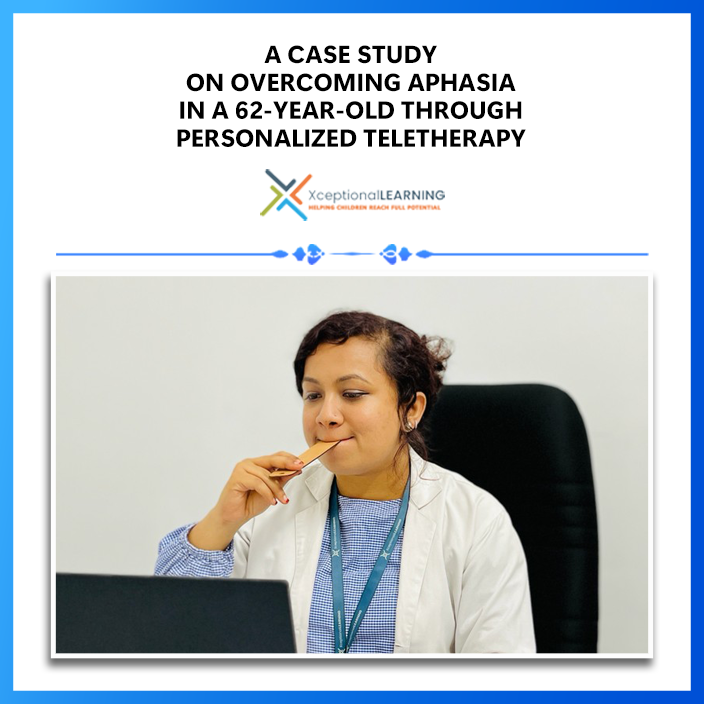A Case Study on Overcoming Aphasia in a 62-Year-Old through Personalized Teletherapy
admin May 28th, 2025

Meet Mr. Kumar, a 62-year-old man who suffered a stroke resulting in left-side paralysis and aphasia. Aphasia, a condition affecting language processing, made it challenging for Mr. Kumar to communicate effectively. Due to mobility restrictions, traditional in- person therapy sessions were not feasible. However, with the help of personalized teletherapy sessions, he embarked on a remarkable journey to recovery.
The Challenges
Mr. Kumar’s stroke had left him with:
- Expressive aphasia: Difficulty speaking in grammatically correct sentences, struggling to find the right words.
- Receptive aphasia: Trouble understanding spoken language, following conversations, and comprehending complex instructions.
- Left-side paralysis: Limited mobility and dexterity, making everyday activities and communication even more challenging.
Personalized Teletherapy Sessions
Through regular and tailored teletherapy sessions, Mr. Kumar worked with a skilled speech-language pathologist to:
- Improve communication: Enhance language processing and expression, focusing on functional communication strategies.
- Build vocabulary: Learn new words, phrases, and sentence structures to improve expressive language.
- Practice conversation: Engage in meaningful conversations, using role-playing and scenario-based exercises.
The Breakthrough
With consistent and targeted teletherapy, Mr. Kumar experienced significant improvements:
- Enhanced language skills: Mr. Kumar’s ability to express himself improved, enabling him to communicate more effectively with family and friends.
- Increased confidence: He became more confident in his communication, participating in conversations and expressing his needs and wants.
- Better relationships: Mr. Kumar’s relationships with family and friends strengthened, reducing feelings of isolation and improving overall well-being.
The Benefits of Teletherapy:
- Convenience: Sessions from the comfort of his home, eliminating the need for transportation and reducing fatigue.
- Accessibility: Overcome geographical barriers, ensuring access to specialized care and support.
- Personalized care: Tailored therapy sessions, addressing Mr. Kumar’s unique needs and goals.
Conclusion
Mr. Kumar’s journey showcases the effectiveness of personalized teletherapy in treating aphasia, particularly for individuals with mobility restrictions. With dedication, the right support, and technology, individuals can overcome communication challenges and improve their quality of life. Teletherapy offers a promising solution for those seeking accessible, flexible, and personalized care.

